Author Q&A: The River Daily, Journeying Toward Liberation
BY KRISTEN TRUDO | June 22, 2020
What is The River Daily?
The River Daily is a month-long journaling project. The aim of this project is to make space for participants to create a sustainable, interior practice for reflecting on their relationship with race; and ultimately, to build a more solid foundation for their liberation work. Drawing upon my experiences with Yoga, spirituality, and my recovery program, I have cultivated daily prompts that include my own storytelling, followed by questions that find race both at the center and the periphery.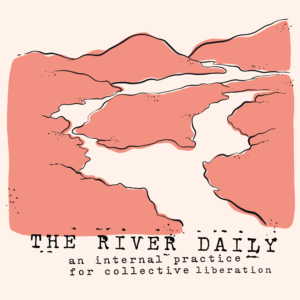
There are no rules for engagement. Participants can create their own practice for sitting with, and answering, these questions. For some, that means a daily writing practice of fifteen minutes. For others, that means a weekly meditation, followed by a two-hour writing session. There is no right way to do this work. The only requirement is to say “yes.”
So much of the “work” around liberation is external. We protest. We make calls. We post hashtags. This practice is meant to complement that work by offering an opportunity to turn inward; and to discover a sense of grounding and sustenance that you didn’t know existed.
Who are you hoping to engage with?
I am hoping to engage with anyone who feels compelled to take a deeper look at their interior world; especially as it pertains to their relationship and personal histories (and family histories) with race. Often, I think the “work” is expected of the privileged group. With regard to race, we are constantly demanding that white folx and non-Black people do “their work.” But I think that Black folx can make space for this “work” as well. And that when we each treat it as a daily practice, instead of something we are driven to do when a Black person gets murdered, the process has the potential to bear so much fruit.
Racialization is an oppressive and pervasive force. None of us come out of this life unscathed. So, in my opinion, this project—this work, this practice of taking a deeper look—is for all of us. If you are willing to look, this project is here to help you make space.
Why are you inviting people to journal opposed to some other way of acting or reflecting?
I have always considered myself a writer. But it was not until the last six months that I have firmly committed to a daily journaling practice. Now, I honestly cannot imagine my life without it. And I say with the deepest sincerity that I believe journaling has saved my life. It has returned me to myself. It has given me space to write the things that I hold closest to my chest. And, most remarkably, when I am writing and feeling resistant to putting particular words on paper—to allowing something to exist outside of my body and in ink – I can be certain that that is a space that needs work. Or attention. If I am resistant, it often means that I am on the precipice of something. When I journal, it allows me to remove something from my body and to take a look at it with compassion, curiosity, and patience; instead of letting it thrash around inside of me, and becoming debilitated by the judgment and the fear.
I believe that all of the external work that we are called to do in the global struggle for liberation is urgent and important. I don’t think that we find freedom without it. But I believe that interior work is just as important. That we can do all of the protesting and campaigning and reading that we want, but unless we are each willing to take an honest look at ourselves, collective freedom will always be a dream beyond our reach.
But to cultivate a space where we can come to know ourselves—where we can make peace with our trauma, our family history, our fears? This, I believe, is a non-negotiable requirement of our freedom.

You have already invited some people to try out River Daily, what have they found valuable about the experience?
Most of the gratitude that has been expressed for this project revolves around the idea of space making. People are grateful for the opportunity to create space for these questions. Questions that have maybe crossed their mind; but have never been attended to with deep commitment and honesty.
They have found the prompts both grounding and thought-provoking. And, in all the prodding, they are developing a sense of curiosity about their relationship to race; as well as compassion for their own experience and those of others.
I’m honored and humbled that some have even expressed an improvement in their mental health as they engage with these prompts. I know that feeling, personally – how journaling can help to move anxiety out of my body. It offers a sense of liberation in its own right.
Finally, I think the journaling has allowed people to tap into their innate wisdom. My offering is to share my story and to ask the questions. The “work,” of course, is in each person’s willingness to answer the questions honestly and to connect to the deep sense of knowing that has always been there.

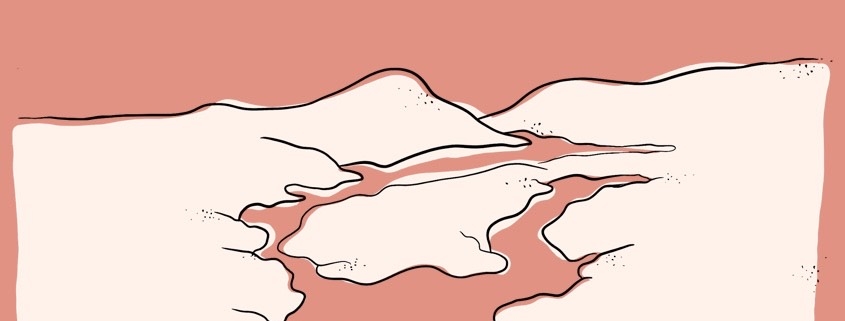
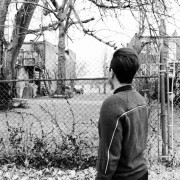
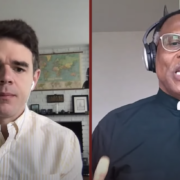

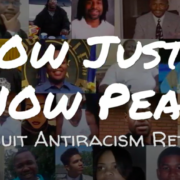
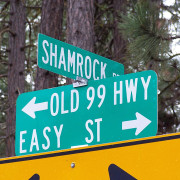
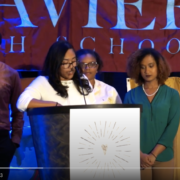

Impressive and inspiring. Thanks Kirsten. The River Daily Project has much to contribute in the task of world remaking and Planet reshaping, of course beginning with one’s own remaking.